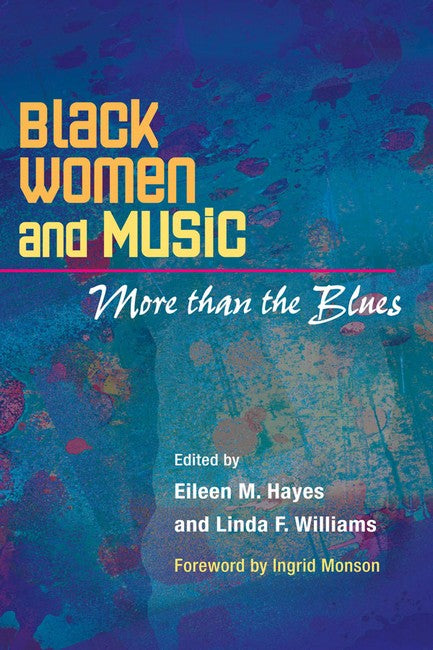This collection is the first interdisciplinary volume to examine black women's negotiation of race and gender in African American music. Contributors address black women's activity in musical arenas that pre- and postdate the emergence of the vaudeville blues singers of the 1920s. Throughout, the authors illustrate black women's advocacy of themselves as blacks and as women in music. Feminist? Black feminist? The editors take care to stress that each term warrants interrogation: Black women can and have forged, often, but not always - and not everywhere the same across time - identities that are supple enough to accommodate a sense of female empowerment through musicking' in tandem with their sensitivities to black racial allegiances. Individual essays concern the experiences of black women in classical music and in contemporary blues, the history of black female gospel-inflected voices in the Broadway musical, and ''hip-hop feminism'' and its complications. Focusing on under-examined contexts, authors introduce readers to the work of a prominent gospel announcer, women's music festivals (predominantly lesbian), and to women's involvement in an early avant-garde black music collective. In contradistinction to a compilation of biographies, this volume critically illuminates themes of black authenticity, sexual politics, access, racial uplift through music, and the challenges of writing (black) feminist biography. Black Women and Music is a strong reminder that black women have been and are both social actors and artists contributing to African American thought.''In a foreward, Ingrid Monson illustrates the need for this book by discussing how students in a jazz class she taught failed to volunteer the name of any woman active in jazz, until that omission was called to their attention. The ten chapters seek a remedy. . . . Recommended.''--Choice ''Black Women and Music provides valuable and lucid evidence for the fact that music making has historically been and continues to be an arena in which black American women explore and create identities that consider the mutually constitutive, embodied, and imagined categories of race, gender, class, generation, and sexuality.''--Women and Music

